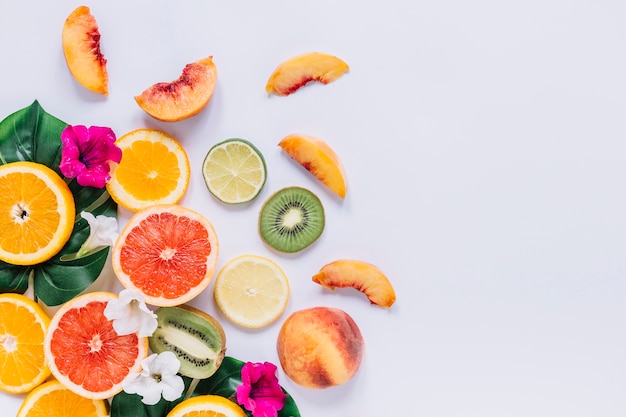Myth and Facts of Confinement

Confinement is a period to allow a mother to recuperate and recover after childbirth. The idea of confinement is familiar to Asians but foreign to Westerners. In the past when infant and maternal mortality rates were high, it was a practice to keep both the baby and mother indoors during the period of confinement to protect them from ill health. However, many of these practises originated from Asian culture and hence, possess no scientific basis at all.

Myth #1: I cannot drink plain water at all during confinement
Fact: Adequate fluid consumption is advised especially if the mother is breastfeeding. In case one drinks less water, it could be hazardous as it may lead to the formation of blood clots in your body. New mothers tend to sweat a lot, and they are also producing milk. It is therefore even more important for them to stay hydrated. The kidneys will produce more urine in the first few weeks after the baby is born to remove the excess fluid that has accumulated during the course of the pregnancy.

Myth #2: I am not allowed to bathe or touch water for fear of ‘wind’ entering the body
Fact: There is no basis to these beliefs. In fact, bathing regularly ensures good personal hygiene and comfort. It also reduces the chance of skin and wound infections.

Myth #3: I must not consume cold food (fruits and vegetables)
Fact: In fact, half of a recovering mother’s diet should consist of fruits and vegetables to help her restore important nutrients and source of fiber. Fiber is important to help avoid constipation among postpartum mothers and prevent hemorroids to happen.
Myth #4: I cannot eat chicken
Fact: It is important to have a well-balanced diet during confinement to replenish the body’s stores rather than avoiding specific food types. Other than consuming fibers, the other half diet portion of a postpartum mother should include whole grains such as brown rice and whole-grain bread. Overall, following the food pyramid is still the way to go. In the case of vegetarians or vegans, iron or vitamin supplements may be taken to fulfill these nutritional needs. However, there are some foods that you should avoid, such as raw food, caffeine and alcohol.

Myth #5: I have been told not to read or cry
Fact: According to traditional Chinese beliefs, childbirth is thought to weaken the liver which is linked to the eyes. During confinement, it is believed that mothers should not read or cry to avoid exerting stress on the eyes. However, there is no scientific proof to back up this belief. While prolonged reading of fine print may cause eye strain, there is no evidence to suggest that it can directly cause damage to the eyes. The same can be said for crying. In fact, crying can be a way of relieving stress and dealing with the emotions that come with being a new mum.

Myth #6: I must not expose myself and my baby to any wind drafts or air-conditioning
Fact: For personal comfort, there is definitely no harm in switching on the air-conditioner or fan, as long as it makes you and your baby comfortable. It may even help prevent heat rash from developing under hot and humid climate.
Myth #7: I shouldn’t walk or move about
Fact: While it’s true that mothers who have just given birth especially those who gave birth via C-section need to rest, they should not be restricted to just lying in bed. Experts recommend new mothers to walk and move around once they feel comfortable as it can help decrease the risk of blood clots (deep vein thrombosis).
Postpartum care
Get plenty of rest
Get as much sleep as possible to cope with tiredness and fatigue. Your baby may wake up every two to three hours for feeding. It is advised that postpartum mothers should get enough rest, sleep when your baby sleeps.
Eat healthy meals
Eat healthy diet to promote healing. Increase your intake of whole grains, vegetables, fruits, and protein. You should also increase your fluid intake, especially if you are breast-feeding.
Seek help
Don’t hesitate to accept help from family and friends during the postpartum period, as well as after this period. Your body needs to heal, and practical help around the house hold can help you get much-needed rest. Friends or family can prepare meals, run errands, or help care for other children in the house hold.
Exercise
Your doctor will let you know when it’s OK to exercise. The activity should not be strenuous. Try taking a walk near your house. The change of scenery is refreshing and can increase your energy level.
References:
8 Confinement Myths Debunked [Internet]. Gleneagles Hospital. [cited 2023 Apr 19]. Available from: https://www.gleneagles.com.sg/healthplus/article/confinement-myths-debunked
Confinement After Pregnancy: 12 Myths and Facts – HealthXchange [Internet]. [cited 2023 Apr 19]. Available from: https://www.healthxchange.sg:443/women/post-pregnancy/confinement-after-pregnancy-myths-facts
Confinement Food in Chinese, Malay and Indian Cultures – HealthXchange [Internet]. [cited 2023 Apr 19]. Available from: https://www.healthxchange.sg:443/women/post-pregnancy/confinement-food-chinese-malay-indian
Myths About Postpartum Care – Healthcare Wellness Blogs – Ovum Hospital [Internet]. 2022 [cited 2023 Apr 19]. Available from: https://ovumhospitals.com/blog/myths-about-postpartum-care/
Confinement Practices and Myths: Part 1 [Internet]. [cited 2023 Apr 19]. Available from: https://www.healthhub.sg/live-healthy/1068/pregnancy-confinement-practices-and-myths
Postpartum Care: Tips for the Recovery Process [Internet]. Healthline. 2016 [cited 2023 Apr 19]. Available from: https://www.healthline.com/health/postpartum-care




